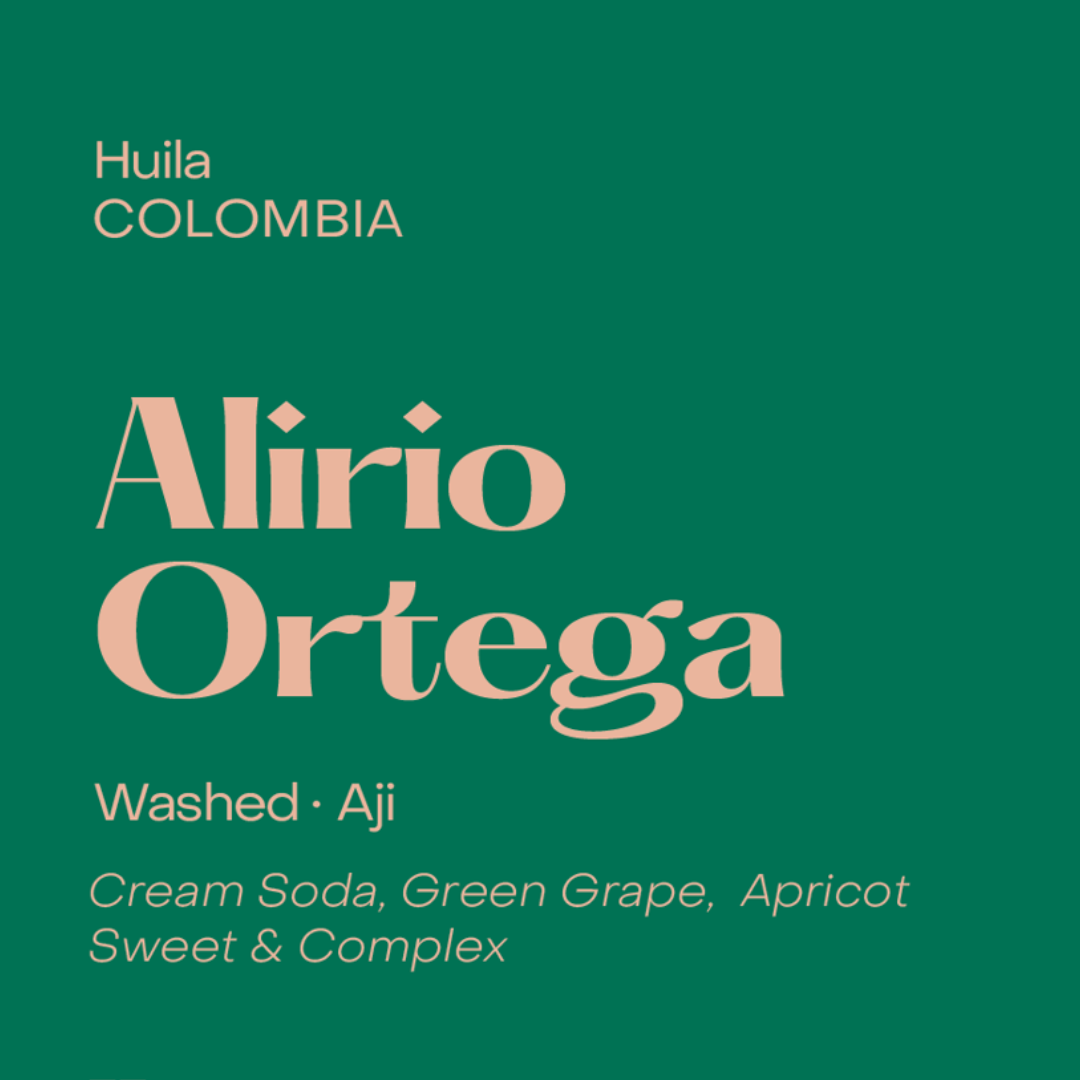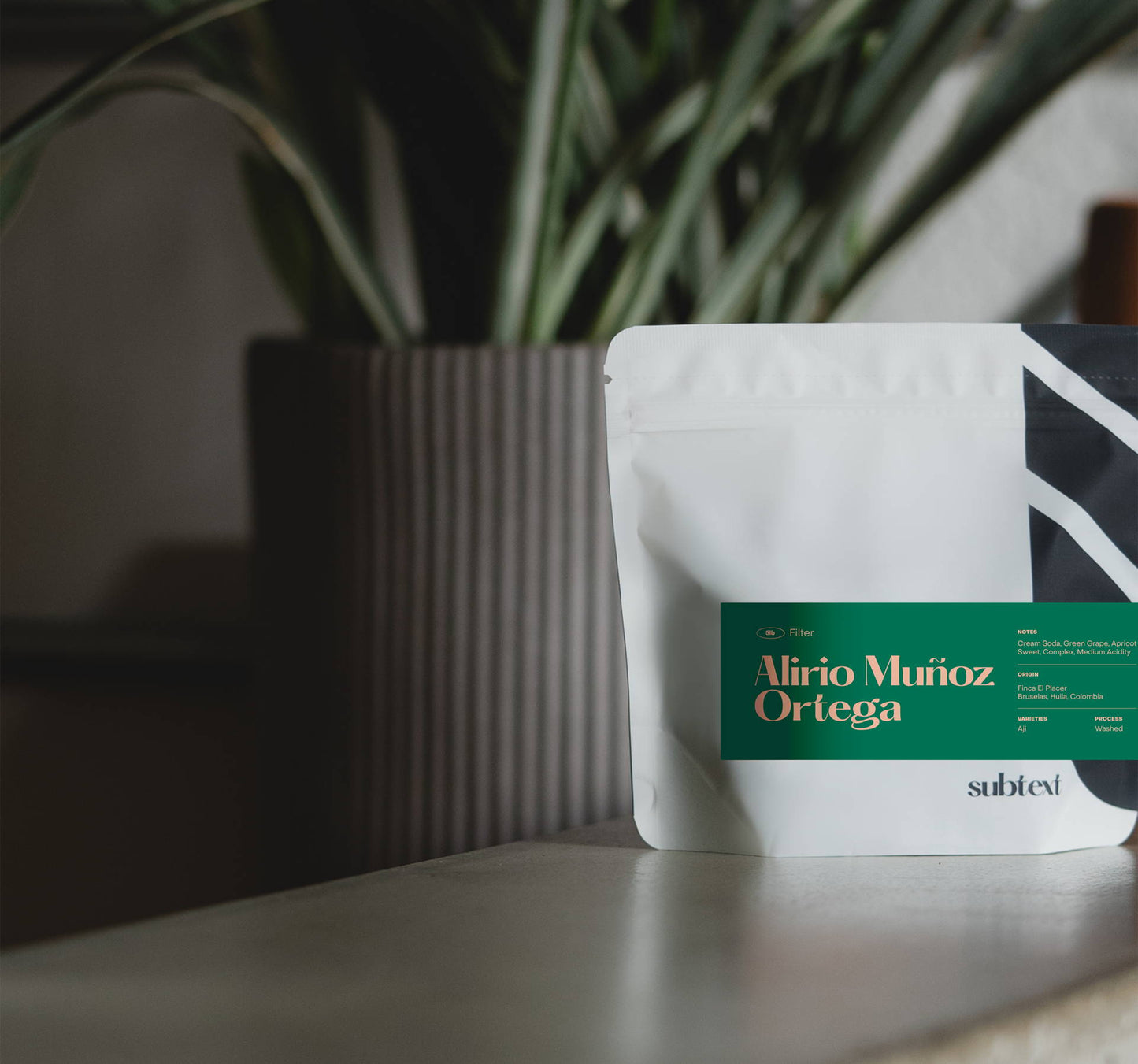Subtext Coffee Roasters
SUBTEXT - Alirio Muñoz Ortega | Colombia - Washed - Aji
SUBTEXT - Alirio Muñoz Ortega | Colombia - Washed - Aji
 Origin: Colombia
Origin: Colombia
 Tasting Notes: Cream Soda, Green Grape, Apricot
Tasting Notes: Cream Soda, Green Grape, Apricot
 Process: Washed
Process: Washed
 Varieties: Aji
Varieties: Aji
 Producer: Alirio Muñoz Ortega
Producer: Alirio Muñoz Ortega
 Farm: El Placer
Farm: El Placer
 Region: Bruselas, Huila, Colmbia
Region: Bruselas, Huila, Colmbia
 Elevation: 1650 masl
Elevation: 1650 masl
 Harvest: Fall 2024
Harvest: Fall 2024
 Recommended Brew: Filter
Recommended Brew: Filter
 Roast Date:
Roast Date:
Couldn't load pickup availability
Subtext Coffee Roasters is located in Toronto, Canada
From SUBTEXT
Alirio, together with his wife Anayibe, and neighbouring local farmers near Bruselas, Huila make up Los Guacharos. As a collective, Los Guacharos are working to move away from the use of synthetic chemical inputs on their farms and towards a more sustainable, biodynamic form of agriculture. Alirio has put a lot of effort and focus into specializing in adventurous varieties at his farm El Placer. These include Pink Bourbon, Bourbon Aji, Chirroso and Sidra. This particular lot of Pink Bourbon is one of the first from his recent plantings. Alirio and Anayibe have also intentionally left a part of their farm as a protected bio-reserve.
Of the many growing regions in Colombia, the mountainous department of Huila in the south west of the country grows the most coffee. Huila enjoys a wide diversity of micro-climates, temperatures, altitudes and coffee varieties. In fact, coffee is grown in 35 of Huila's 37 municipalities. All of this means that the coffee coming out of this region is as diverse as the variables that influence its production.
Aji
Though it is often called Bourbon Aji, this variety—more aptly named Aji—has been discovered to be genetically distinct from Bourbon and is most likely an Ethiopian landrace variety like Pink Bourbon, Sidra, and Chiroso. It is known for having a ‘spicy’ cup profile, hence its name, which is Spanish for chili pepper.
Washed
Alirio picks cherries as ripe as can be, and does an initial float in water to remove the over- and under-ripe cherries. From there, he leaves the cherries to start the initial fermentation process in a plastic bag for 36-40 hours, depending on the weather he’s careful to keep the bags with cherries especially cool during this initial fermentation period. From there, he de-pulps the coffee, and then ferments it for an additional 36-40 hours before washing it. To identify the best time to de-pulp the coffee, he takes some and places it in water to see if the mucilage of the sample washes off easily- he also says that he tastes it to see if the coffee has a prickly, bright taste to it. From there, his coffee is sun-dried for around 15 days, and then dried under shade cloth for 10 more days. Parchment coffee is stored in Grain Pro bags at home to ensure that humidity is stable at around 11%.
Share





